2025 Hyundai Santa Cruz XRT Review and Test Drive: Off-Roading
Easy-peasy off-road lite with more than sufficient bite.
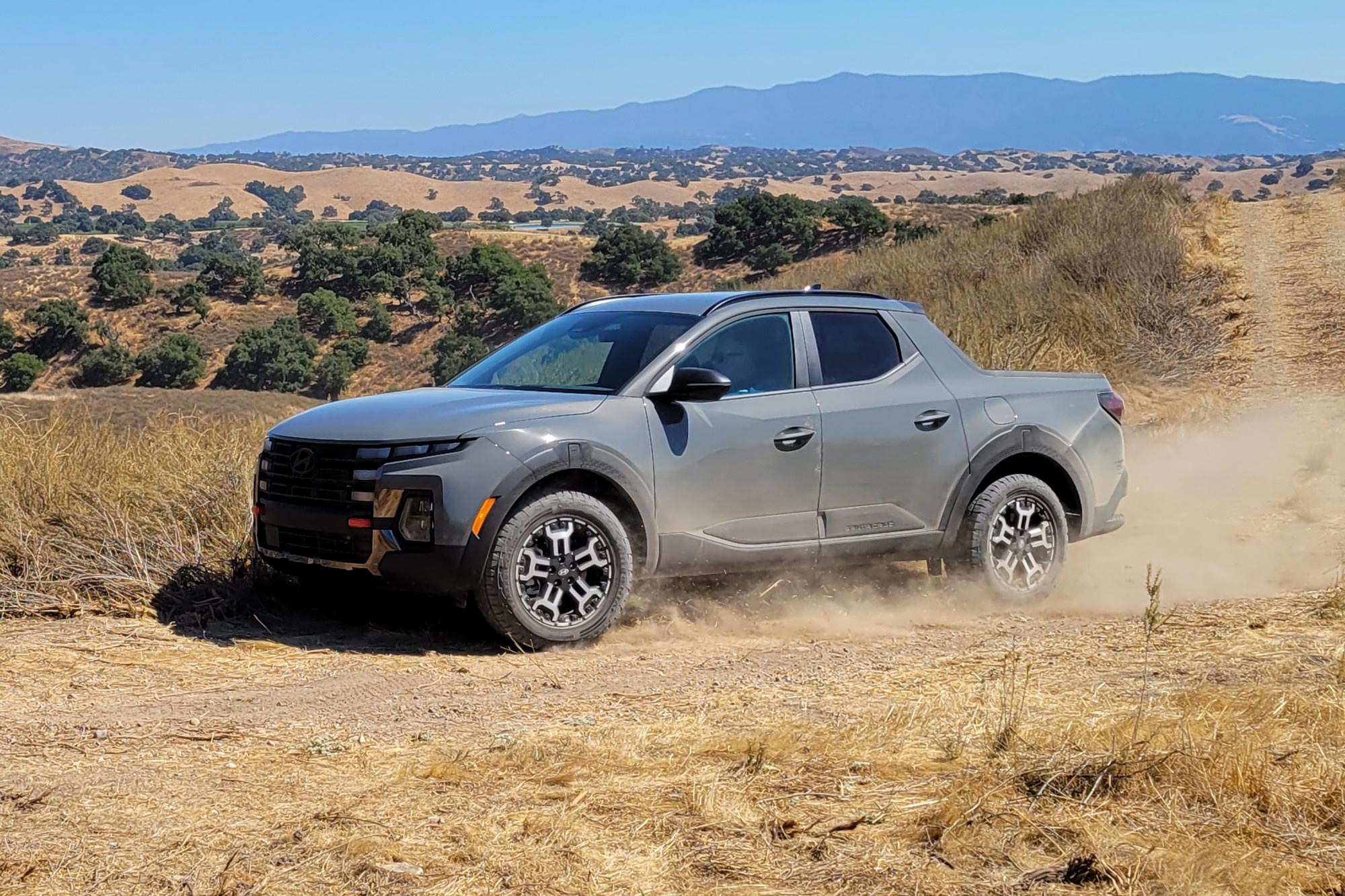 Ron Sessions
Ron Sessions
Great collaborations create legends: Abbott and Costello, Simon and Garfunkel, chocolate and peanut butter, and, well, you get the idea.
The 2025 Hyundai Santa Cruz strikes me as a great automotive collaboration, though it may not become legendary. This mashup between a crossover SUV and a pickup truck blends practicality and whimsy in equal measure and is as pleasing to the eye as it is kind to the pocketbook.
Based on previous drives in the Santa Cruz, I can attest to its suitability as a daily driver. What I discovered this time is that the updated 2025 Santa Cruz XRT is also perfect for exploring two-track dirt trails in the backcountry.
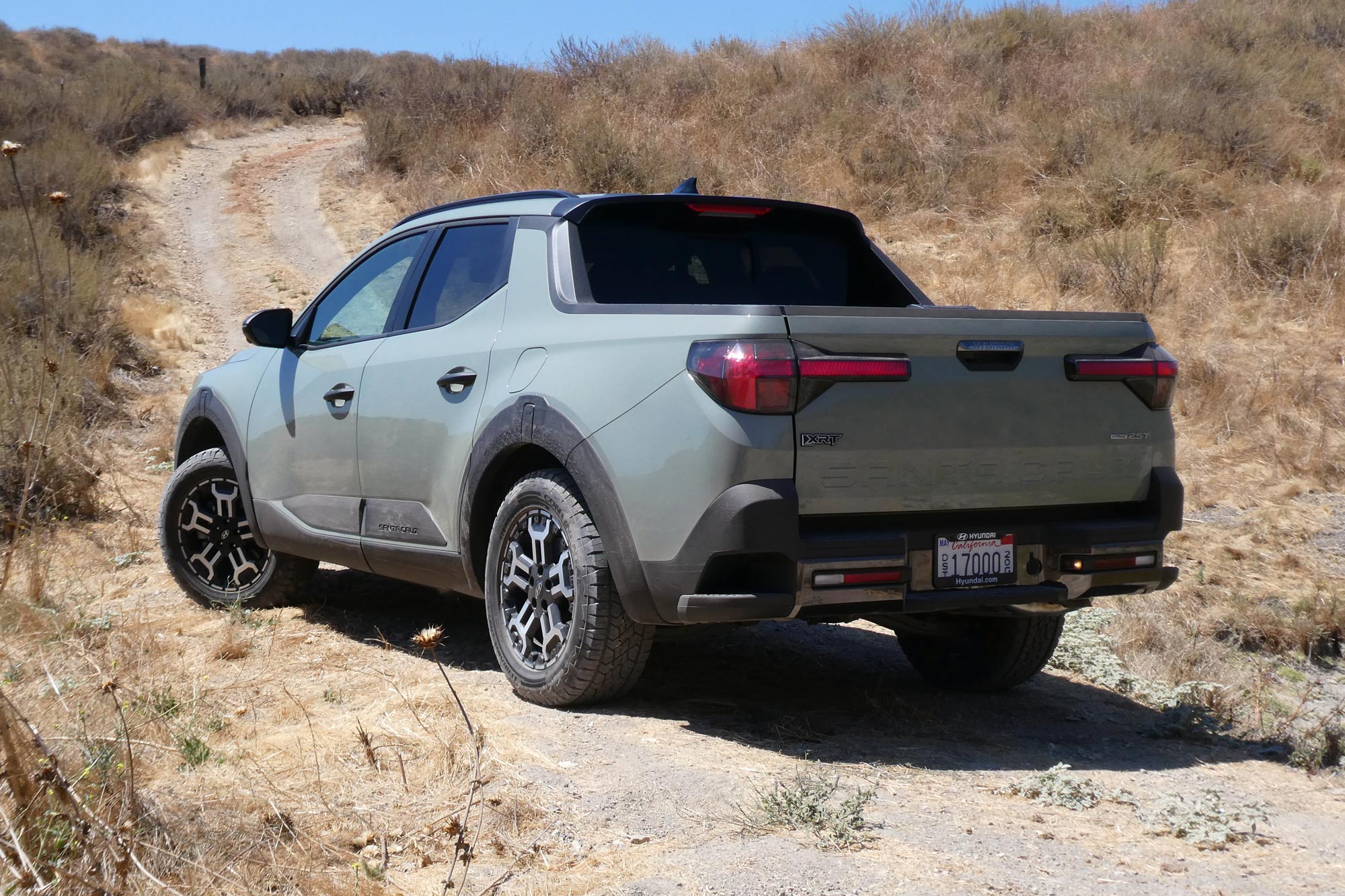 Ron Sessions
Ron Sessions
Part Pickup, Part Crossover SUV, the 2025 Santa Cruz Goes Its Own Way
As with its direct rival, the Ford Maverick, the Hyundai Santa Cruz blends the traits of a compact crossover SUV and a small pickup. The automaker calls the result a Sport Adventure Vehicle, and the Santa Cruz features four doors, five-passenger seating, and a short cargo bed just over 4 feet long.
There are roomier SUVs and sturdier pickup trucks, but the Santa Cruz offers modest amounts of passenger and open cargo-toting space in a stylish package that can easily fit into most garages. Prices range from the high $20,000s to the low $40,000s, and the affordable Santa Cruz is also reasonably fuel efficient.
For 2025, the Santa Cruz gets a mild freshening with a more aggressive-looking grille and running-light array. Inside, a new dashboard with a panoramic curved display, a larger 12.3-inch touchscreen infotainment system, and standard wireless Apple CarPlay and Android Auto connectivity improve the interior.
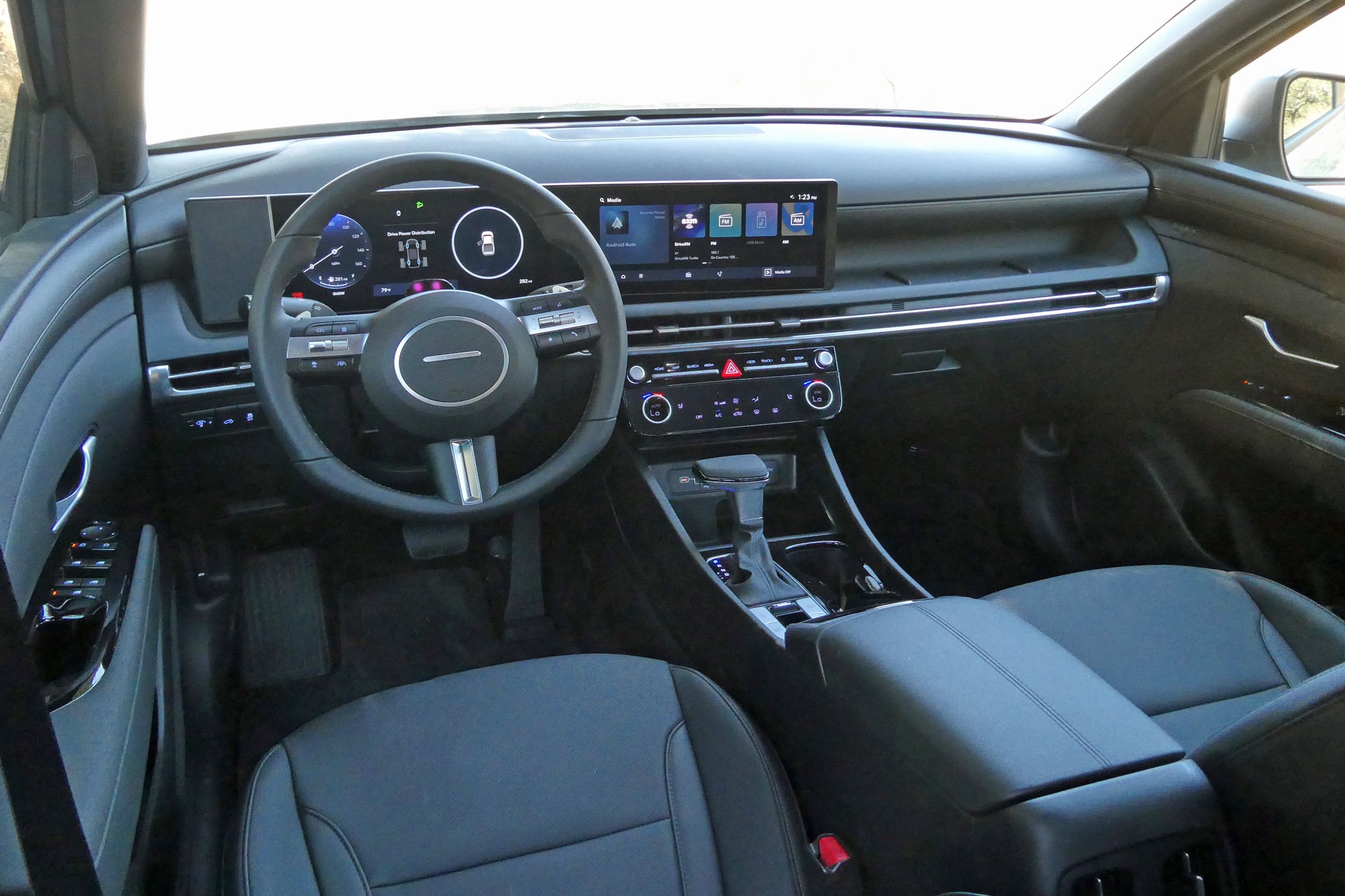 Ron Sessions
Ron Sessions
XRT Trim Cranks Up the Off-Road Look, Adds Off-Pavement Bite
The XRT trim turns up the volume on the Santa Cruz's looks. In front, a bolder, blockier, and blacked-out grille sits atop a more expressive lower fascia with an improved approach angle; the XRT adds two bright red tow hooks, more pronounced body cladding, and new 18-inch wheels with a unique stylized wrench design. More aggressive all-terrain tires replace the previous XRT's all-season rubber.
Added firepower bolsters the superhero looks. The XRT is the least expensive version of the 2025 Santa Cruz equipped with its most powerful engine — a turbocharged 2.5-liter four-cylinder engine and quick-shifting eight-speed dual-clutch automatic transmission. The engine supplies an ample 281 horsepower and 311 pound-feet of torque, and a standard all-wheel-drive system puts the power to terra firma.
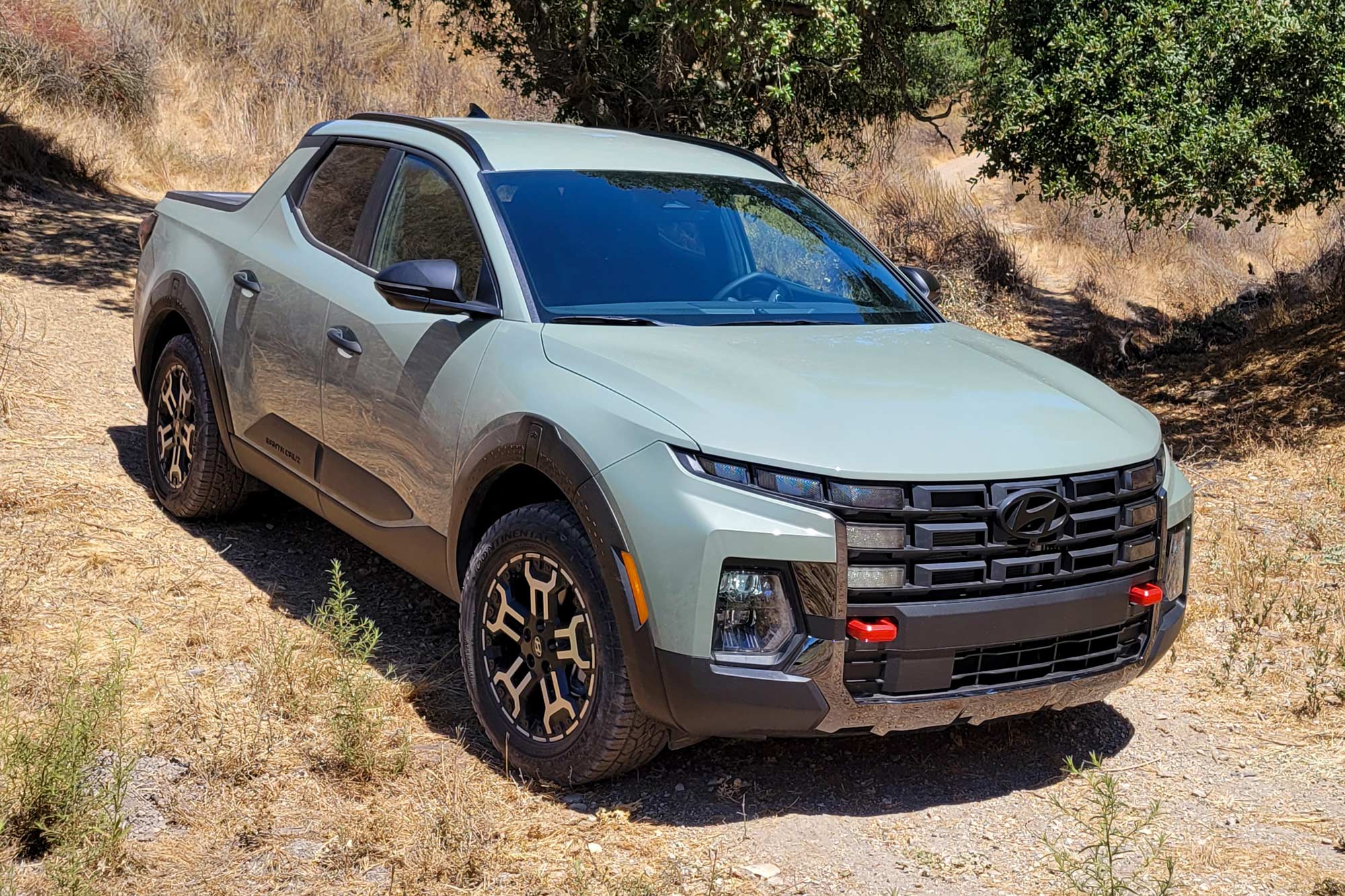 Ron Sessions
Ron Sessions
Santa Cruzing Off the Grid
Hyundai invited me to Los Olivos, California, to take an off-road-only drive in the 2025 Santa Cruz XRT. The approximately 2-mile course consisted of a dirt two-track bisecting several cow pastures, twisty sections through the nearby foothills, washes with pulse-quickening ascents and descents, and a few open stretches along the ridge tops.
My first lap of the course was for familiarization. I traveled at a relaxed pace, letting the AWD system's automatic mode decide how to deliver the power to the front and rear axles, much like an owner might while enjoying a leisurely tour of backcountry scenery. Over dirt, gravel, and some small rocks, the XRT's Continental all-terrain tires never lost traction.
The Santa Cruz XRT offers several selectable drive modes but not a dedicated off-road mode. That wasn't a problem, though, as several off-road driving aids are accessible via buttons on the center console. I used them on the livelier second lap of the course.
The XRT lacks a locking mechanical center differential — a feature available on some more serious, and more expensive, off-road vehicles. Instead, it has an AWD center lock to ensure traction on challenging terrain by overriding the normally variable front/rear drive torque split. That ensures all four tires contribute equally to forward locomotion.
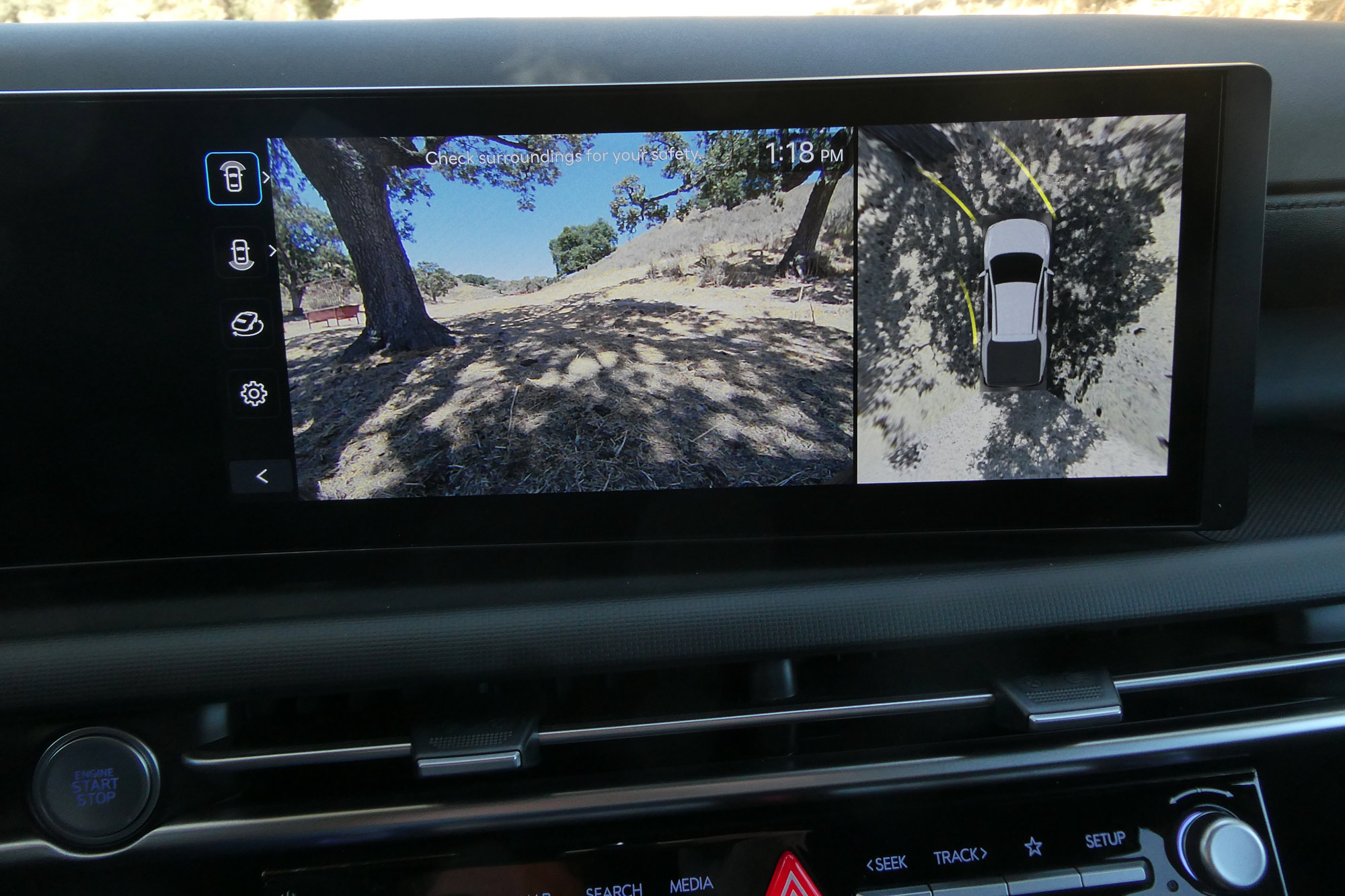 Ron Sessions
Ron Sessions
A surround-view camera is also available, defaulting to a front view when you first press the activation button. Although the Santa Cruz doesn't have a tall hood that blocks the view directly in front of the vehicle, the camera was helpful for scoping out the terrain in advance. Unfortunately, it shuts off once the truck is moving at about 5 mph, which I thought was too low a speed.
You can activate the hill-start assist by pressing a button marked Auto Hold. I forgot to turn it on, stopped on a steep uphill section, and when I shifted the transmission from Park to Drive, the Santa Cruz slid back a few uncomfortable feet even as I pressed the accelerator pedal. That wouldn't have occurred with hill-start assist, and I turned it on for the remainder of the drive.
Downhill brake control is another useful technology. Even though none of the course's hills were steep enough to require it, I engaged it to initiate a low-speed descent. The system automatically pulsed the brakes to limit speed, allowing me to concentrate on steering the Santa Cruz down the hill.
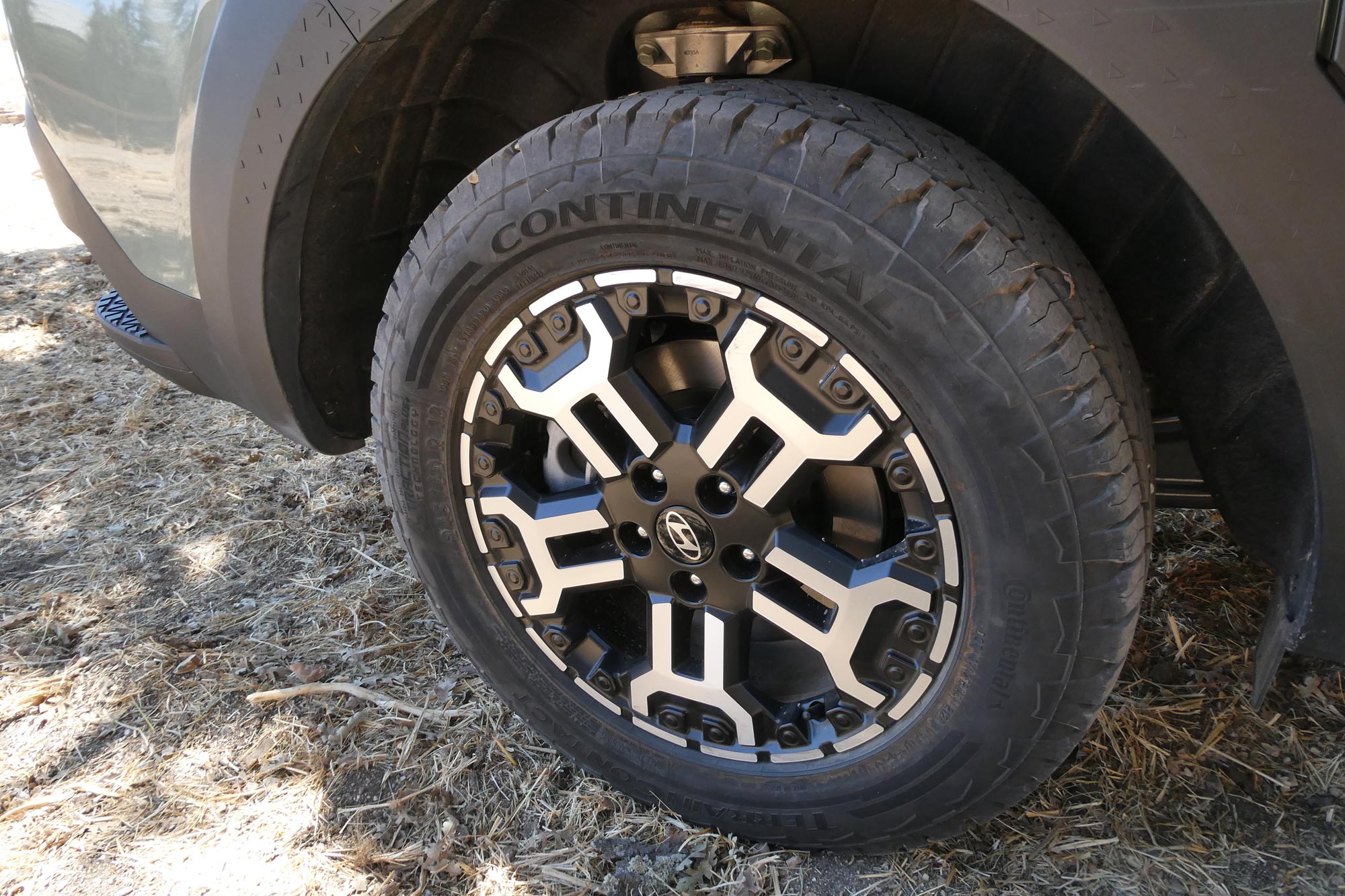 Ron Sessions
Ron Sessions
This One Is Not Like the Others, and That's a Good Thing
At a base price just above $41,000, including destination, the 2025 Hyundai Santa Cruz XRT is unlike any other crossover SUV or pickup truck on the market today. Though it has a rugged design and new all-terrain tires, it doesn't pack hardcore off-road features, such as a lifted suspension, low-range gearing, or a mechanical locking differential.
Instead, it pairs the off-roader look with passenger- and cargo-toting capability in a practical daily driver. The result makes the Santa Cruz XRT well suited for occasional off-pavement treks, getting a mountain bike to the trail, carrying things home from the hardware store, running the kids to school — namely, the sorts of errands I could imagine most people doing with a smaller pickup truck.
Hyundai provided the vehicle for this 2025 Santa Cruz XRT review and paid for airfare, lodging, and meals during the evaluation period.
All vehicle pricing includes MSRP plus destination charges (set at the time of publication), and will be rounded to the nearest thousand.
Written by humans.
Edited by humans.
 Ron Sessions
Ron SessionsRon Sessions is a seasoned vehicle evaluator with more than three decades of experience. He has penned hundreds of road tests for automotive and consumer websites, enthusiast magazines, newsletters, technical journals, and newspapers.
Related articles
View more related articles